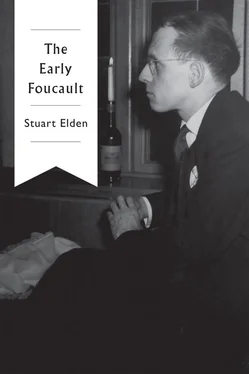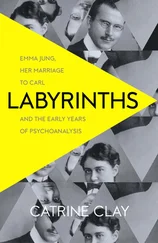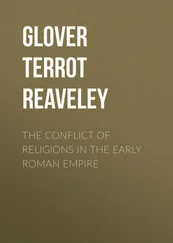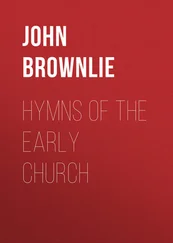24 24. Jean Wahl, Heidegger I, Paris: Centre de documentation universitaire, [1952], 94 n. 1, mentions the analysis of boredom in Heidegger’s 1929/30 course The Fundamental Concepts of Metaphysics: World, Finitude, Solitude (GA29/30), trans. William McNeill and Nicholas Walker, Bloomington: Indiana University Press, 1995. See Les Philosophies de l’existence, 102; Philosophies of Existence, 68.
25 25. Compare backcover of Jean Wahl, Introduction à la pensée de Heidegger: Cours donnés en Sorbonne de janvier à juin 1946, Paris: Le livre de poche, 1998, with ‘Appendix: Jean Wahl’s Letter to Martin Heidegger, December 12, 1937’, in Wahl, Transcendence and the Concrete, 213–15, 215. The original of the letter is in the Deutsches Literaturarchiv Marbach, 75.6908/2. The same conclusion is reached by Dominique Janicaud, Heidegger en France I: Récit, Paris: Albin Michel, 2001, 95 n. 55.
26 26. Jean Montenot, ‘Avant-propos’, in Wahl, Introduction à la pensée de Heidegger, 7–12, 7; Janicaud, Heidegger en France I, 94–5. Editorial notes specify these links in some detail.
27 27. Janicaud, Heidegger en France I, 95.
28 28. Defert OE I, xxxviii.
29 29. Montenot, ‘Avant-propos’, 11. In Dominique Janicaud, Heidegger en France II: Entretiens, Paris: Albin Michel, 2001, 11, Axelos says he attended two or three courses by Wahl, but that he found them unsatisfactory, and he began reading Heidegger himself.
30 30. Jean Wahl, L’Idée d’être chez Heidegger, Paris: Centre de Documentation Universitaire, 1951; La pensée de Heidegger et la poésie de Hölderlin, Paris: Centre de Documentation Universitaire, 1952. For dating, see Claire Paulhan, Fonds Jean Wahl inventaire, IMEC, 2004, 6–7.
31 31. Baring, The Young Derrida, 104–105.
32 32. I.e. Wahl, L’Idée d’être chez Heidegger, 47.
33 33. Walter Biemel, Le Concept de monde chez Heidegger, Paris: Vrin, 2nd edn, 2015 [1950]; Henri Birault, ‘Existence et vérité d’après Heidegger’, Revue de métaphysique et de morale, 56 (1), 1951, 35–87.
34 34. BNF NAF28730 (33a), Folder 1.
35 35. Jean Wahl, Sur l’interpretation de l’histoire de la métaphysique d’après Heidegger, Paris: Centre de Documentation Universitaire, 1951; Esquisse pour un tableau des catégories de la philosophie de l’existence, Paris: Centre de Documentation Universitaire, 1951.
36 36. Wahl, Sur l’interpretation, 1.
37 37. Wahl, Sur l’interpretation, 33.
38 38. BNF NAF28730 (33a), Folder 1 has notes on the Plato essay, the 1925 course, the 1936 course on Nietzsche, and Holzwege.
39 39. Jean Wahl, Traité de métaphysique: Cours professés en Sorbonne, Paris: Payot, 1968 [1953].
40 40. Jean Wahl, Vers la fin de l’ontologie: Étude sur l’Introduction dans la métaphysique par Heidegger, Paris: Société d’Édition d’Enseignement Superieur, 1956. See Martin Heidegger, Introduction to Metaphysics (GA40), trans. Gregory Fried and Richard Polt, New Haven: Yale University Press, 2000. On Wahl’s course see Janicaud, Heidegger en France I, 169–70.
41 41. Jean Wahl, Mots, mythes et réalité dans la philosophie de Heidegger, Paris: Centre de documentation universitaire, 1961.
42 42. Frédéric de Towarnicki, interview with Jean Beaufret, in À la rencontre de Heidegger: Souvenirs d’un messager de la Forêt-Noire, Paris: Gallimard, 1993, 251.
43 43. Jean Wahl, Petite histoire de l’existentialisme, Club Maintenant, 1947, 34–5.
44 44. Martin Heidegger, The Metaphysical Foundations of Logic (GA26), trans. Michael Heim, Bloomington: Indiana University Press, 1984, 270–1. Montenot and Janicaud both assume the course mentioned is Einleitung in die Philosophie, but since Beaufret refers to the publication of the course in the Gesamtausgabe, this cannot be the case, since Einleitung was not published until a decade after Beaufret’s death. Beaufret is wrong that the passage is not in the published version of The Metaphysical Foundations, but otherwise this story fits. See Montenot, ‘Avant-propos’, 9 n. 2; Janicaud, Heidegger en France I, 96; Towarnicki, À la rencontre de Heidegger, 251, 131; Jean Beaufret, Entretiens avec Frédéric de Towarnicki, Paris: PUF, 1984, vii.
45 45. Paola Zambelli, Alexandre Koyré in incognito, Firenze: Leo S. Olschki, 2016, 234.
46 46. See, among other works, Alexandre Koyré, From the Closed World to the Open Universe, Baltimore: Johns Hopkins Press, 1957; La Révolution astronomique: Copernic, Kepler, Borelli, Paris: Hermann, 1961, The Astronomical Revolution: Copernicus, Kepler, Borelli, trans. R. E. W. Maddison, London: Methuen, 1973; and De la mystique à la science: Cours, conférences et documents 1922–1962, ed. Pietro Redondi, Paris: EHESS, 1986.
47 47. Paola Zambelli, ‘Introduction’, in Jean-François Stoffel, Bibliographie d’Alexandre Koyré, Firenze: Leo S. Olschki, 2000, vii–xx, xv. Koyré also takes part in a discussion of Wahl’s 1946 lecture published as Petite histoire de l’existentialisme, 75–9.
48 48. G. W. F. Hegel, La Phénoménologie de l’esprit, trans. Jean Hyppolite, Paris: Aubier, 2 vols, 1939–41; Genèse et structure de la Phénoménologie de l’esprit de Hegel, Paris: Aubier, 2 vols, 1946; Genesis and Structure of Hegel’s Phenomenology of Spirit, trans. Samuel Cherniak and John Heckman, Evanston: Northwestern University Press, 2000; Jean Hyppolite, Introduction à la Philosophie de l’histoire de Hegel, Paris: M. Rivière et Cie, 1948; Logique et existence: Essai sur la Logique de Hegel, Paris: PUF, 1953; Logic and Existence, trans. Leonard Lawlor and Amit Sen, Albany: SUNY Press, 1997.
49 49. Alexandre Kojève, Introduction à la lecture de Hegel: Leçons sur la Phénoménologie de l’esprit professées de 1933 à 1939 à l’École des hautes études, ed. Raymond Queneau, Paris: Gallimard, 1980 [1947]; abridged as Introduction to the Reading of Hegel: Lectures on the Phenomenology of Spirit, ed. Allan Bloom, trans. James H. Nichols, Jr, Ithaca: Cornell University Press, 1980 [1969].
50 50. On Kojève’s seminar, see Kleinberg, Generation Existential, ch. 2; Michel Surya, Georges Bataille: An Intellectual Biography, trans. Krzysztof Fijalkowski and Michael Richardson, London: Verso, 2002, 187–90; and Jeff Love, The Black Circle: A Life of Alexandre Kojève, New York: Columbia University Press, 2018.
51 51. Interview with Mme Hyppolite, cited in John Heckmann, ‘Introduction’, in Hyppolite, Genesis and Structure, xv–xli, xxvi.
52 52. Heckmann, ‘Introduction’, in Hyppolite, Genesis and Structure, xiii. On this context, see Judith Butler, Subjects of Desire: Hegelian Reflections in Twentieth-Century France, New York: Columbia University Press, 1987, and Bruce Baugh, French Hegel: From Surrealism to Postmodernism, London: Routledge, 2003. Hyppolite’s work was slightly preceded by G. W. F. Hegel, Morceaux choisis, translated and introduced by Henri Lefebvre and Norbert Guterman, Paris: Gallimard, 1938.
53 53. Jean Hyppolite, Études sur Marx et Hegel, Paris: Marcel Rivière et Cie, 1955; Studies on Marx and Hegel, trans. John O’Neill, London: Heinemann, 1969.
54 54. Jean Hyppolite, Figures de la pensée philosophique: Écrits 1931–1968, Paris: PUF, 2 vols, 1971.
55 55. https://www.youtube.com/watch?v=v3M0SJ2sJqg; transcribed as DE#31 I, 448–64.
56 56. Georges Canguilhem and Michel Foucault, ‘Jean Hyppolite (1907–68)’, Revue de métaphysique et de morale, 74 (2), 1969, 129–36. Foucault’s text is reprinted as DE#67 I, 779–85.
57 57. Hommage à Jean Hyppolite, Paris: PUF, 1971. Generally, see Giuseppe Bianco (ed.), Jean Hyppolite, entre structure et existence, Paris: Rue d’Ulm, 2013.
58 58. Macey, The Lives of Michel Foucault, 32; see Eribon, Michel Foucault et ses contemporains, 315 n. 1; Schrift, Twentieth-Century French Philosophy, 126.
Читать дальше










